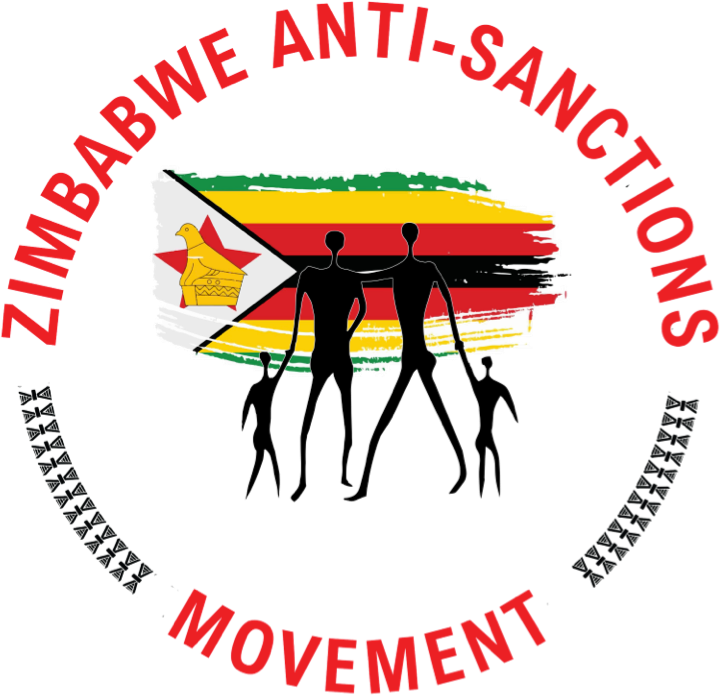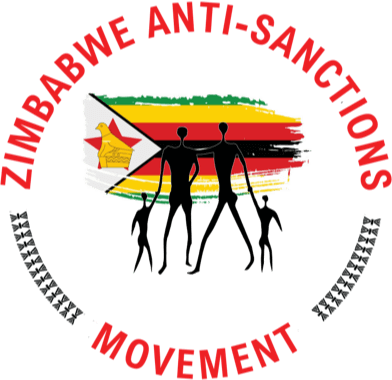Yesterday, a fellow Zimbabwean said SADC, the AU and Africa had not stood by Zimbabwe in fighting sanctions. I even heard Robert Mugabe saying something similar in a speech and my own organization is guilty of writing a number of missives accusing the South African government of not supporting us.
However, when we are honest with ourselves, in African culture, you cannot expect your neighbours to barge into your home to defend you, if you the owner are not taking lead or publicly inviting neighbours to assist you to defend your home.
We can’t blame non-Zimbabweans for not defending our country from sanctions when:
- our own nation has not taken these sanctions seriously for 20 years and some of our own public representatives have been the ones publicly calling for these sanctions without repercussions.
- Currently, our state does not have a single law passed by parliament against sanctions, in order to fight them. Yet all the superpowers that imposed these measures on Zimbabwe, found it important enough to use their parliaments, committees, agencies, laws and executive orders to sanction a little third world country for their own national interests.
- After 20yrs of this economic war, our government still does not have a single department, ministry, institution, parliamentary committee or organization dedicated to studying, understanding and dealing with sanctions. Instead, we sometimes see sabotage of civil society organizations that are fighting these sanctions by politicians who are seeking to politicize and monopolize the fight.
- Our universities, tertiary institutions and schools have no courses on national security or this important subject. The nation has no books, songs, plays, programs or documentaries about these sanctions, after 20yrs of this crime upon the Zimbabwean people. But we have let foreign ideologies like individual human rights over public rights, religion and education theories indoctrinate Zimbabweans, thus sabotaging the nation and advancing western interests.
- Most of our businesspeople don’t know which sanctions are upon their businesses and lawyers don’t understand them, the legal instruments used to implement them, the illegalities around them and how they are a gross violation of our collective humanity.
- As a nation, we have not invested in a national campaign against them, to educate regional leaders, politicians, parliamentarians, government officials, businesspeople, lawyers, humanitarian organizations, activists, opinion makers, students, civil society, influencers and the public about sanctions, how they affect us, how to mitigate them, our human rights and how sanctions are crimes against humanity.
- Government has failed to commission a single research or study on the issue to send to SADC, AU and African countries, to inform them and get buy-in from them on the strategy to fight this and future total wars on Pan-Africa.
Last week, I saw a lousy 2012 report written by the Reserve Bank of Zimbabwe on these unilateral coercive economic measures. And since 2012, this below par document that fails to give our business community and legal minds enough information about this collective punishment, how it works and which legal instruments are used [to enable them to strategize on how to mitigate this economic war], continues to be the only official document by government on sanctions.
- In our legal bodies, there are no legal case studies, legal opinions, legal commentary or theories on how these sanctions are crimes against humanity and how they can be defeated.
Our leading legal minds such as Beatrice Mthethwa and Nyambira have failed to study sanctions to a point that when one of our leading financial institutions challenged them legally, they had to use a foreign law firm to win their case.
As a result, a tight lid was put on the facts of this OFAC defeat, in what is Zimbabwean legal precedence.
Amazingly, even after this and other key victories against these illegal measures by this institution and others, our lawyers and legal minds in government, have not taken note or studied these landmark cases to create case theory and institutional memory, to assist other leading companies (on which many of our leading lawyers sit as board members) to mitigate these sanctions going forward.
- Our Presidents have failed to call a national emergency against these unilateral coercive measures, so that resources can be allocated to fighting this national security threat. But the first world sanctions senders found it fitting to use their parliaments, national emergencies (the US declared three national emergencies on Zimbabwe) and executive orders to impose them.
As a people, we still have not learnt how to use institutions, information and systems to defend our national sovereignty in 41yrs of independence, yet we purport to be the most educated Africans.
- Our institutions and billionaires have failed to sponsor Zimbabweans to become full time scholars, researchers, strategists and scenario planners on the phenomenon, to develop expertise on the subject.
- For the past 20yrs, we have failed to approach regional, continental and international courts to oppose these illegal economic measures and crimes against humanity, to create international legal custom and assert black humanity.
- On the 18th of October 2021, the UN Special Rapporteur is coming to measure the negative impact of these sanctions on Zimbabwe.
Alongside that, the United States Congress Subcommittee on Global Human Rights, Health and Organization is also engaging POLAD on an impact assessment the committee is doing on the effects of US sanctions on health and human rights. But even then, our government has not commissioned a formal study or seminar on the impact of sanctions on Zimbabwe, in spite of the fact that our civil society organizations have been proposing that since 2018.
Instead, we are told that in 2019, an anti-sanctions group constituted by a number of politicians, was hastily established and funds meant to start projects to mitigate sanctions were released to that group, and none of the projects were implemented. However, none of the civil society organizations that were actually promoting the depoliticization of the fight against sanctions to a legal and humanitarian fight, received any assistance.
- With this visit of the UN Special Rapporteur, we once again see politically connected people jostling for position on who will present to the UN envoy.
People are focused on seeking individual glory, instead of us as a nation coming together with SADC, the AU, other African countries, humanitarian organizations and civil society to share information, coordinate presentations and to put those who are likely to be most effective, in the forefront, to represent the nation. How then, can such a selfish, individualistic national culture, be accepting of neighbours’ assistance, when we think that fighting sanctions is a scramble for resources and recognition.
- More critically, our government continues not to rebut false allegations of human rights violations in the media and international reports. Thus, enabling these false claims of human rights abuses by our government [which have not been tested by due process] to continue to be used by western legislative bodies to illegally punish Zimbabweans by sanctions without trial.
Paul Kagame and the Rwandan government have clearly illustrated through their PR work, that a nation must never take accusations lying down, because then the court of public opinion and the resulting [global] public indifference, can be used to destroy nations that don’t challenge falsehoods, as we saw in Afghanistan, Libya, Iraq and Syria.
Even though the Rwandan government has been shown to have caused the deaths of over 5 million people in the Great Lakes by UN reports, international court prosecutors and insurmountable evidence, they have no sanctions on them because their PR experts and legal minds, fight to rebut such untested allegations in order for them to evoke reasonable doubt and solidarity from international publics.
Zimbabweans are not treating the issue of fighting sanctions and defending their country, seriously or strategically as the Rwandans do. So, we can’t expect Africans and our neighbours to take the lead when we are failing to win their hearts and minds by telling our story.
Rutendo Bereza Matinyarare
Marketing and Brand expert and leader of Zimbabwe Anti Sanctions Movement and ZUAUWS UN



